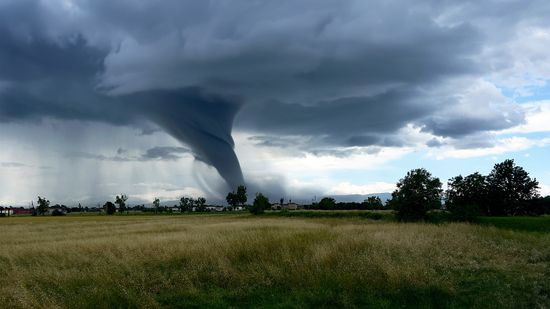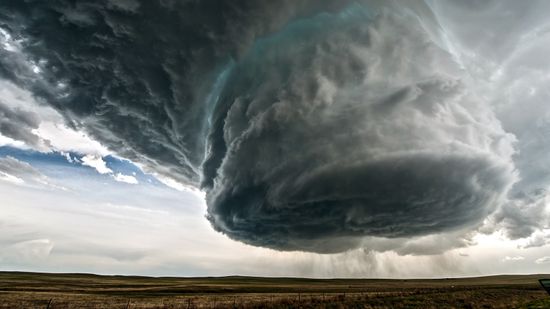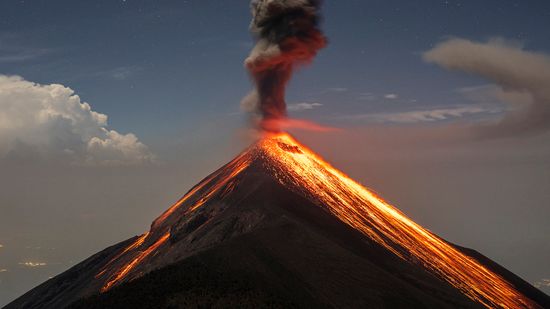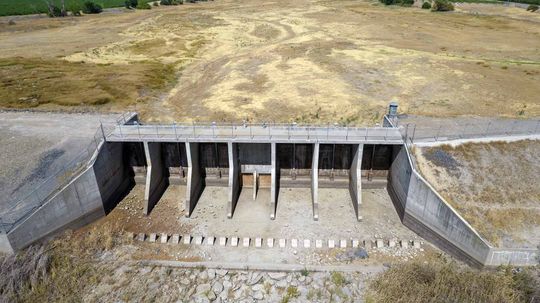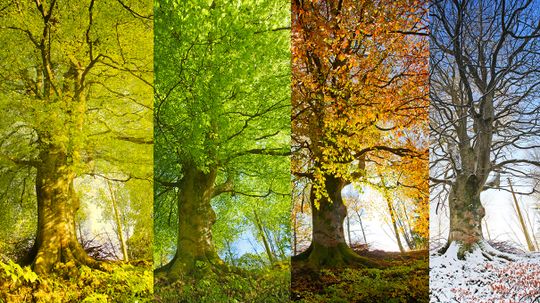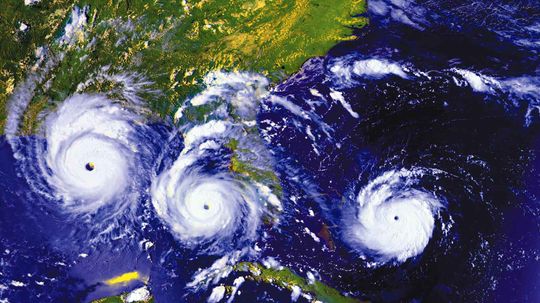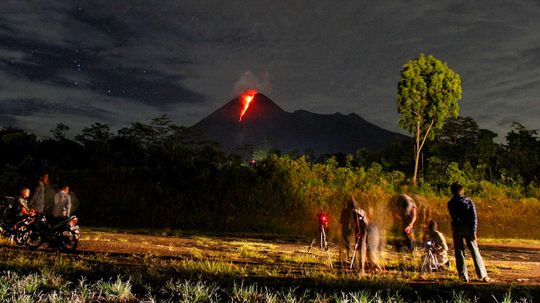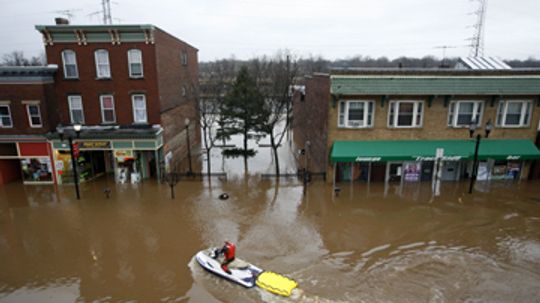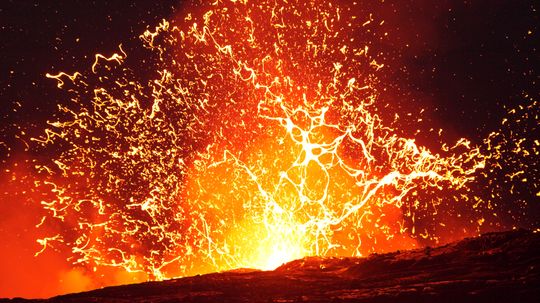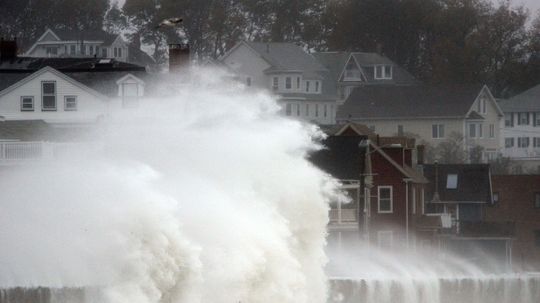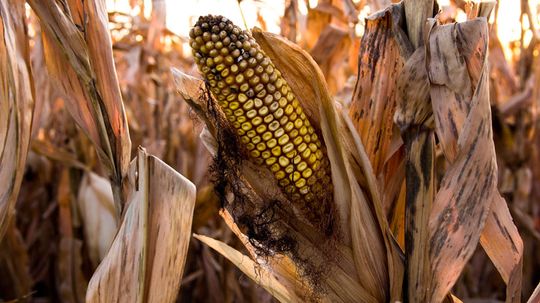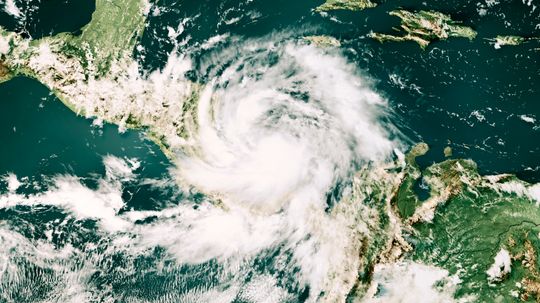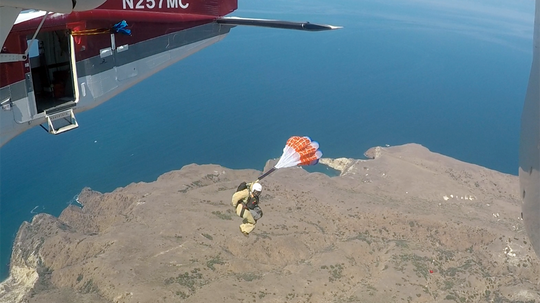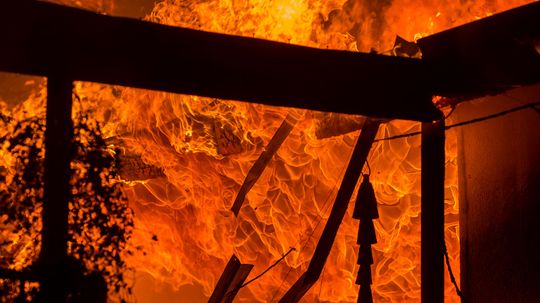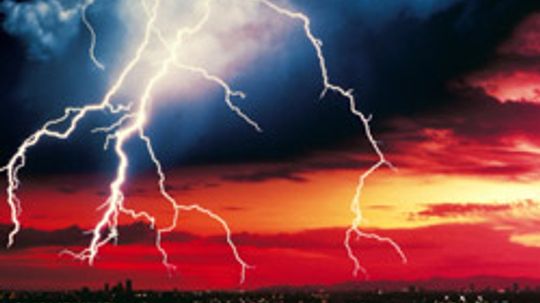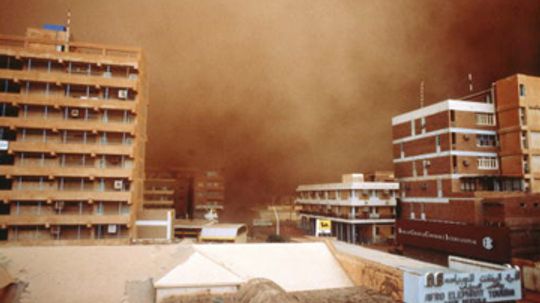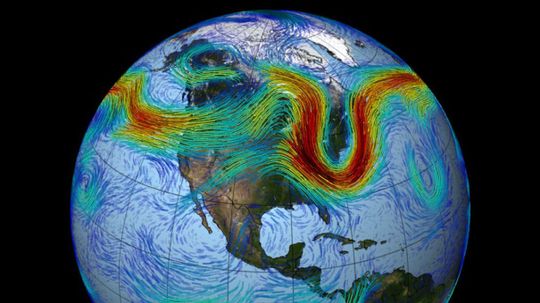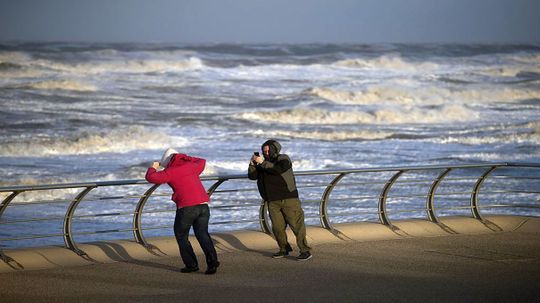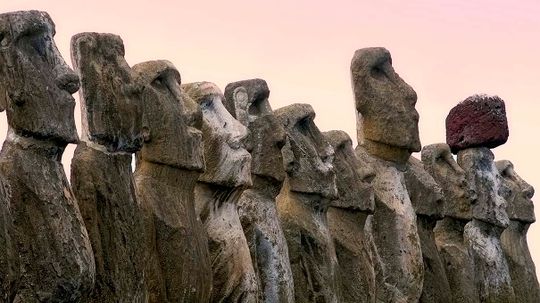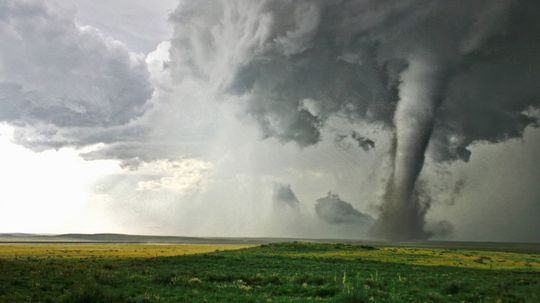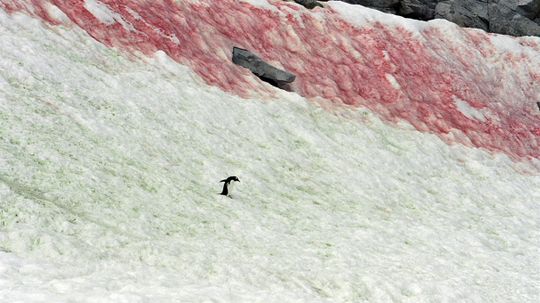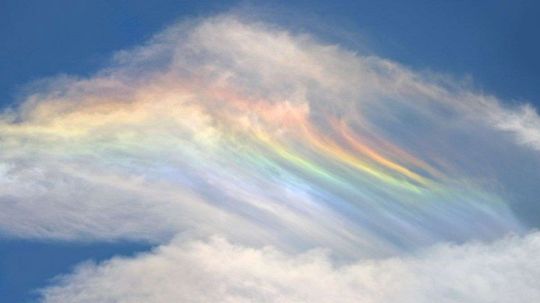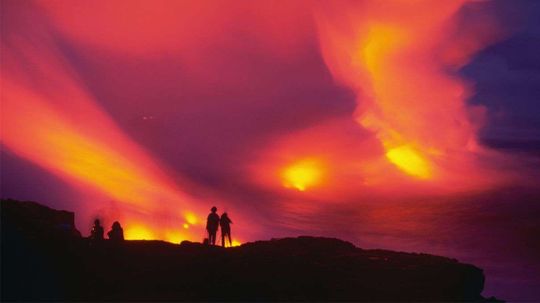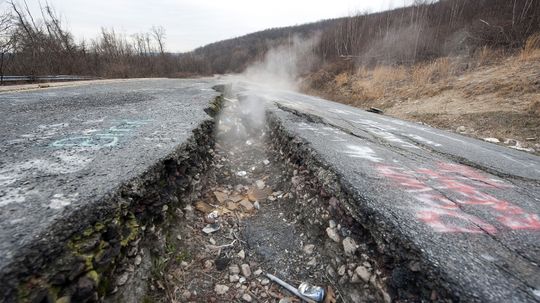Forces of Nature
We see the destruction that the Earth can unleash in the news on a regular basis. Here you can learn about hurricanes, tornadoes, earthquakes and other forces of nature.
Learn More / Page 6
Nearly 90 percent of the Western U.S. is gripped by an "apocalyptical" drought that only continues to worsen. Even if you don't live in the area, it affects you - and what you do affects it.
The four seasons experienced by Earth's midlatitude regions are being gradually altered by global warming - but a climate expert says they won't completely go away.
How does a hurricane become a Category 5 and what's it like to live through it? Those who have say you don't want to know.
By Dave Roos
Advertisement
New research digs into historic volcano fatalities to explore how, where and whom a volcano is most likely to kill.
When a hurricane or flash flood strikes a city, it can leave residents stranded in their cars, homes or other buildings waiting for rescue. How do rescue teams know where to go first?
The question about supervolcanoes, it turns out, isn't whether one could destroy all life on Earth. It's when will it do it again. Wait, what?
"Nor'easter" is one of those words that makes you think of an old mariner scanning the horizon for a pending storm. What does it really mean - and why don't we say "northeaster"?
Advertisement
What happens when the rains cease and water levels dry up precipitously? Everything from abundant grasses to apex predators suffers the consequences.
By Robert Lamb
Learn about Hurricane Julia's origins, its impact, and its place in the history of tropical storms and hurricanes.
By HowStuffWorks
Have you ever wondered how weather stations gather all of their data? Even though technology for predicting the weather has improved, simple weather balloons do a lot of the hard work every day.
Let's say a big one strikes the home planet. You, however, happen to be flying above the earthquake's epicenter when the natural disaster ripples through. Would you feel it?
By Robert Lamb
Advertisement
Smokejumpers are the men and women who specialize in fighting blazes their ground-bound peers can't reach. So who are they, and what's the "Mutilator"?
Human activities (such as leaving a campfire unattended, discarding lit cigarettes, debris burning and intentional arson) are among the top causes of wildfires.
Without question, nature can produce beautiful light shows. Add wind, rain and hail, and you have an awe-inspiring event. But thunderstorms are not to be taken lightly. Here's how to stay safe as Mother Nature displays her strength.
By Sara Elliott
Every time disaster strikes, one man's name arises alongside the obsessive news coverage: Nostradamus. According to some folks, the famed French seer has predicted many of the planet's gloomy twists and turns. What did he have to say about 2012?
Advertisement
Though they're outranked by other, more dangerous natural phenomena, dust storms can still do serious damage to life and property. What causes these massive storms?
Polar temperatures are changing more rapidly than equatorial ones, making the jet stream slower and wider, and extreme events longer-lasting.
We've all seen shots of meteorologists fighting gale-force winds to report on storms. So just how high can the winds get before the reporters are knocked off their feet?
The danger to the iconic statues is now greater than ever due to erosion and higher-energy wave action caused by climate change.
By Amanda Onion
Advertisement
Researchers from Montreal's Concordia University have figured out why the air inside a tornado vortex is cooler and less dense than the surrounding air.
Red snow? Yes. It totally exists. And while it might look cool, it's not exactly what you want to see from Mother Nature.
By Mark Mancini
Very specific atmospheric conditions and just the right perspective are necessary to see the phenomenon.
Smartphone cameras enable us to take striking pictures of strange atmospheric phenomena-though we don't always know what we're seeing.
Advertisement
It's every evil mad scientist's dream. Could it ever be a reality?
By Julia Layton
The fire under the tiny town of Centralia, Pennsylvania, has been burning since at least 1962 and, to this day, nobody knows how to put it out.
By Mark Mancini



